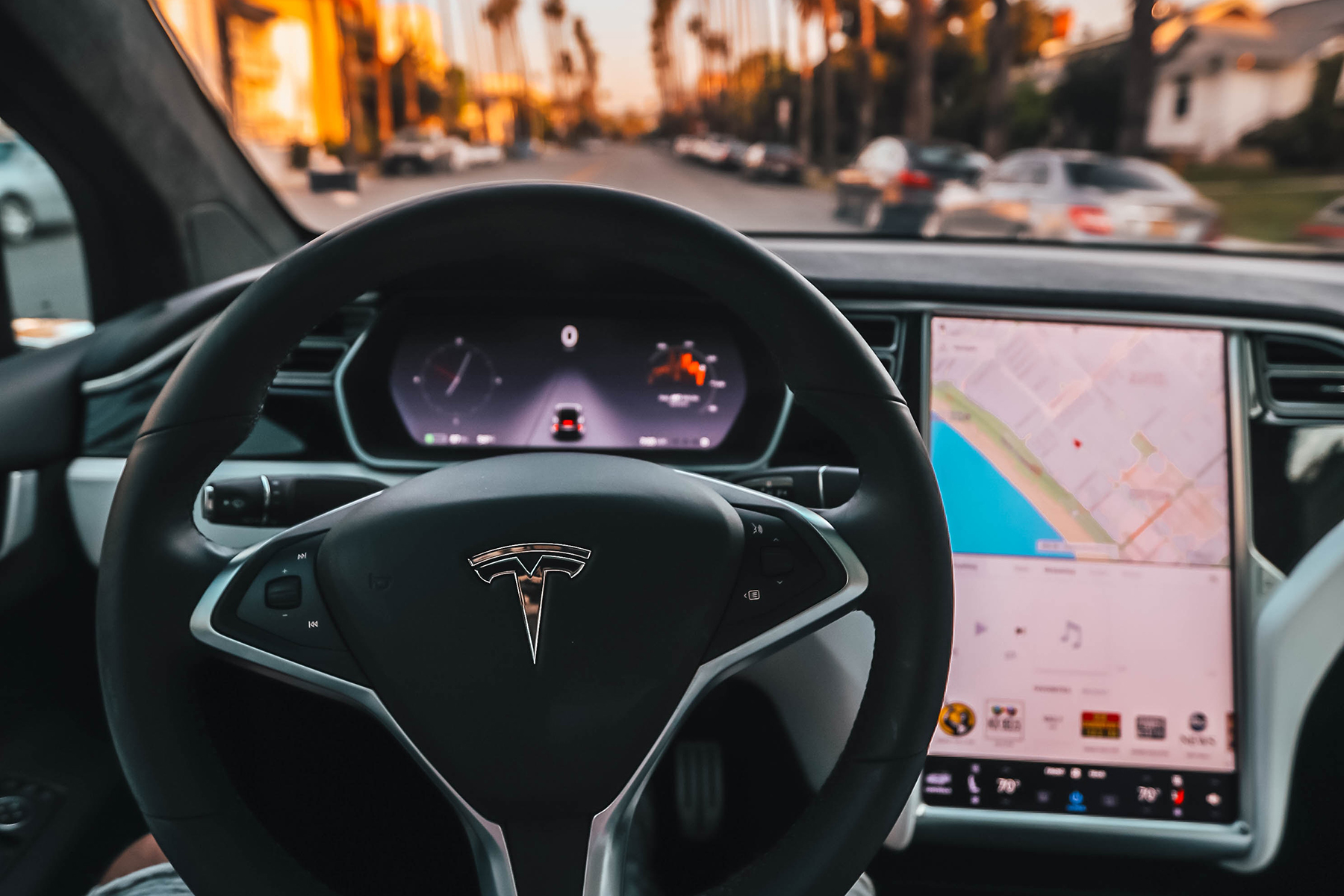June 8, 2023

The automotive landscape has witnessed a remarkable transformation, catapulting family cars from conventional machines to AI-driven marvels. The integration of Artificial Intelligence (AI) in transportation has revolutionized the way families commute, ensuring enhanced safety, seamless connectivity, personalized experiences, and a glimpse into the future of autonomous driving. Let us embark on a journey to explore the extraordinary capabilities and potential of AI-powered family cars.
AI-Powered Safety Features
In an era where safety is paramount, AI technology has emerged as a game-changer on the roads. Leveraging advanced algorithms and sensors, AI-powered safety features offer families a higher level of protection than ever before. These cutting-edge systems are capable of analyzing the surrounding environment, detecting potential hazards, and taking proactive measures to prevent accidents.
Collision Avoidance Systems: Keeping Families Safe
One of the key safety advancements in AI-powered family cars is collision avoidance systems. Through a combination of radar, cameras, and machine learning algorithms, these systems monitor the road ahead, alerting drivers to potential collisions and even autonomously applying brakes to mitigate the impact. By acting as an extra pair of vigilant eyes, collision avoidance systems ensure the safety of families on the move.
Adaptive Cruise Control: Smarter and Safer Driving
AI-driven adaptive cruise control takes conventional cruise control to new heights. By utilizing sensors and AI algorithms, this intelligent system maintains a safe distance from the vehicle ahead, automatically adjusting the speed to match the flow of traffic. Families can now enjoy a smoother and safer driving experience, as adaptive cruise control reduces the risk of rear-end collisions and enhances overall road safety.
Lane-Keeping Assist: Guiding Families on the Right Path
The advent of lane-keeping assist systems has revolutionized the way families navigate busy roads. By using cameras and AI algorithms, these systems detect lane markings and provide gentle steering interventions to keep the vehicle within the designated lane. Lane-keeping assist ensures that families stay on the right path, reducing the likelihood of accidents caused by unintended lane departures.
Intelligent Connectivity and Convenience
The Connected Family Car: AI and Seamless Integration
AI-driven family cars have transformed into mobile hubs of connectivity, seamlessly integrating with various devices and platforms to enhance the overall driving experience. These intelligent vehicles can interact with smartphones, smart home devices, and cloud-based services, creating a connected ecosystem that extends beyond the confines of the car.
AI-Assisted Navigation: Getting There Effortlessly
Gone are the days of fumbling with paper maps or relying solely on GPS navigation systems. AI-assisted navigation in family cars leverages real-time traffic data, machine learning algorithms, and predictive analysis to offer optimized routes and accurate arrival time estimates. With voice-guided instructions and live traffic updates, families can effortlessly navigate their way to their destination, avoiding congested routes and saving valuable time.
Voice-Activated Controls: A Hands-Free Experience
With the integration of voice-activated controls, family car interiors have become command centers accessible through simple verbal cues. AI-powered virtual assistants respond to voice commands, allowing drivers and passengers to adjust settings, make phone calls, send messages, and even control infotainment systems without taking their hands off the steering wheel. This hands-free experience ensures convenience and minimizes distractions, enhancing safety for families on the go.
Smart Home Integration: Extending Connectivity Beyond the Car
AI-driven family cars have become an extension of the smart home ecosystem, enabling seamless integration with smart home devices. With the power of voice commands or mobile applications, families can control home appliances, adjust thermostats, turn on lights, and even unlock doors before arriving home. This integration creates a seamless transition from the car to the home, making the overall experience more convenient and harmonious.
Personalization and Comfort
Customizing the Ride: AI’s Impact on Family Car Comfort
AI has brought a new level of personalization to family car experiences, allowing each member to tailor their ride according to their preferences. From seat adjustments to ambient lighting, AI-powered systems can store and recall individual profiles, ensuring optimal comfort for everyone on board. The customization options are endless, providing a personalized sanctuary for families during their journeys.
AI-Powered Driver Profiles: Tailoring the Experience
Gone are the days of manually adjusting seats, mirrors, and climate controls. AI-powered driver profiles enable family car occupants to save their preferred settings, including seat positions, temperature, music preferences, and more. As each family member steps into the car, the vehicle intuitively adjusts to their predefined settings, creating a familiar and comfortable environment for every individual.
Intelligent Climate Control: Perfecting the Cabin Environment
AI has bestowed family cars with the ability to maintain an ideal cabin temperature, regardless of the external conditions. By analyzing ambient temperature, humidity, and individual preferences, intelligent climate control systems adapt and adjust in real-time, providing a comfortable and consistent environment for the entire family. No more debates over the thermostat – AI takes care of it all.
Entertainment Systems: Catering to Every Passenger
Long journeys are no longer boring affairs, thanks to AI-enhanced entertainment systems in family cars. These sophisticated systems offer a wide array of multimedia options, including streaming services, movies, games, and personalized playlists. With AI algorithms that understand individual preferences and suggest content, families can enjoy an immersive and tailored entertainment experience on the road.
Autonomous Driving and Family Car Ownership
Embracing the Autonomous Revolution
The advent of autonomous driving has revolutionized the concept of family car ownership. With AI at the helm, family cars are transitioning from being mere modes of transportation to autonomous companions, offering a multitude of benefits that reshape the way families perceive and interact with their vehicles.
Levels of Autonomy: Understanding the Driving Experience
Autonomous driving encompasses different levels of automation, ranging from driver assistance features to fully self-driving capabilities. Understanding these levels – from Level 1 (driver assistance) to Level 5 (full autonomy) – is crucial in comprehending the evolving landscape of autonomous family cars. Each level brings unique functionalities and gradually reduces the need for human intervention, paving the way for a safer and more convenient driving experience.
The Road to Full Autonomy: Benefits and Challenges
While the journey towards fully autonomous family cars is underway, it comes with its own set of benefits and challenges. Autonomous vehicles promise increased safety, reduced congestion, enhanced energy efficiency, and improved accessibility for families. However, challenges such as regulatory frameworks, infrastructure development, and public acceptance must be addressed to fully realize the potential of autonomous driving in family car ownership.
The Future of Car Ownership: Implications for Families
As the role of AI in family cars expands, the concept of car ownership is also evolving. With the rise of ride-sharing services and subscription-based models, families have access to on-demand transportation without the burden of owning a vehicle. The integration of AI in autonomous family cars has the potential to redefine car ownership, offering flexibility, convenience, and cost savings for families.
AI and Maintenance Optimization
Proactive Vehicle Health: AI’s Role in Maintenance
AI technology is revolutionizing vehicle maintenance by enabling proactive and predictive approaches. With continuous monitoring of vital components and sensors, AI-powered systems can detect and diagnose potential issues before they escalate, allowing families to address maintenance needs promptly. By reducing unplanned breakdowns and optimizing maintenance schedules, AI ensures that families stay on the move with peace of mind.
Predictive Maintenance: Preventing Issues Before They Occur
Gone are the days of relying on rigid maintenance schedules. AI-powered predictive maintenance takes maintenance optimization to the next level. By analyzing data from sensors and historical patterns, AI algorithms can anticipate component failures, wear and tear, and even recommend maintenance tasks in advance. Families can avoid costly repairs and unexpected breakdowns, ensuring the longevity and reliability of their family cars.
Real-Time Diagnostics: Keeping Families on the Move
AI-powered real-time diagnostics continuously monitor the performance of various vehicle systems, providing families with instant feedback on potential issues. From engine health to tire pressure, these systems alert drivers to anomalies, allowing them to take appropriate action. By keeping families informed about the overall health of their cars, AI empowers them to make informed decisions and prevent potential breakdowns.
Performance Optimization: Maximizing Efficiency and Longevity
AI’s impact extends beyond maintenance by optimizing the performance of family cars. By analyzing driving patterns, traffic conditions, and environmental factors, AI algorithms can provide real-time suggestions to optimize fuel efficiency and reduce emissions. Additionally, AI-powered systems can adapt to individual driving styles, learning and optimizing performance to enhance longevity and reliability.
Ethical and Regulatory Considerations
Navigating the Ethical Landscape of AI-Driven Cars
As AI becomes increasingly integrated into family cars, ethical considerations come to the forefront. Questions of moral decision-making arise in situations where AI systems must make split-second choices, such as avoiding accidents or prioritizing occupants’ safety. Navigating the ethical landscape of AI-driven cars involves establishing guidelines and principles that align with societal values and ensure the safety and well-being of all stakeholders.
Ethical Decision-Making: Balancing Safety and Autonomy
Ethical decision-making in AI-driven cars requires striking a delicate balance between safety and autonomy. AI systems must be programmed to prioritize human life while also respecting legal and ethical guidelines. Establishing ethical frameworks that account for various scenarios and values is crucial in shaping the behavior of AI systems, ensuring responsible decision-making and reducing potential risks.
Legal Frameworks: Addressing Liability and Accountability
The advent of AI in family cars raises complex legal questions regarding liability and accountability. Determining responsibility in the event of accidents involving autonomous vehicles requires a comprehensive legal framework. This framework must address issues such as determining fault, defining responsibilities for manufacturers and operators, and establishing guidelines for insurance coverage. Clear legal frameworks are vital to ensure accountability and protect the rights and safety of all parties involved.
Privacy and Data Protection: Safeguarding Family Information
With AI systems collecting and analyzing vast amounts of data, privacy and data protection become paramount concerns. Safeguarding the personal information of families, including their travel patterns, preferences, and even biometric data, requires robust privacy regulations and secure data management practices. Striking a balance between data utilization for AI systems and protecting individual privacy is essential in building trust and ensuring data security.
The Future Outlook
Pioneering the Way Forward: AI’s Impact on Family Cars
The integration of AI in family cars marks a significant milestone in the automotive industry. AI-driven advancements continue to push the boundaries of what family cars can offer, revolutionizing safety, connectivity, comfort, and sustainability. The future promises exciting developments that will reshape the driving experience for families and pave the way for a more intelligent and efficient transportation ecosystem.
Industry Innovations: Automakers and Tech Collaboration
Automakers and technology companies are at the forefront of driving AI innovation in family cars. Collaborations and partnerships between these entities foster cross-pollination of ideas, leading to breakthrough technologies and groundbreaking features. By leveraging expertise from both industries, automakers can accelerate the development and integration of AI-driven capabilities, ensuring that families benefit from the latest advancements.
Trends and Predictions: What Lies Ahead for Family Cars
As AI continues to evolve, several trends and predictions shape the future of family cars. From enhanced autonomous capabilities to augmented reality interfaces, the possibilities are limitless. Innovations such as biometric authentication, emotion recognition, and even AI-powered personal assistants hold the potential to transform the way families interact with their vehicles, making the driving experience safer, more enjoyable, and truly personalized.
Embracing AI: Shaping the Future of Transportation
As AI takes the wheel, embracing the power of AI-driven family cars becomes pivotal. The integration of AI technology enables families to experience enhanced safety, connectivity, personalization, and convenience. By embracing AI, families can unlock the full potential of their vehicles and become active participants in shaping the future of transportation, where AI-driven family cars redefine the way we travel and interact with our vehicles.
Conclusion
The arrival of AI in family cars has ushered in a new era of transportation, revolutionizing the driving experience for families. From AI-powered safety features to intelligent connectivity, personalized comfort, autonomous driving, maintenance optimization, and ethical considerations, AI’s impact is far-reaching. As families embrace the next generation of AI-powered family cars, they embark on a journey of enhanced safety, convenience, and exciting possibilities, setting the stage for a future where AI takes the wheel and redefines family cars and transportation as we know it. Strap in for the journey ahead – the future of AI-powered family cars awaits.
Related Articles
Ferrari Unveils its Latest Supercar – The Prancing Beast
Ladies and gentlemen, hold on to your seats and prepare for an adrenaline-fueled ride because Ferrari, the iconic Italian luxury sports car manufacturer, has just unveiled its latest masterpiece, aptly named "The Prancing Beast." This automotive marvel represents the...
Lamborghini Aventador SVJ Takes the Track World by Storm
In the realm of luxury sports cars, few names evoke as much excitement and admiration as Lamborghini. Known for their cutting-edge design, exhilarating performance, and uncompromising commitment to automotive excellence, Lamborghini has once again raised the bar with...
Beyond Four Wheels: Electric Bikes and Scooters Leading the Micromobility Revolution
Hey there, fellow electric vehicle enthusiasts! Today, I want to delve into an exciting topic that is transforming the way we navigate our cities: the micromobility revolution powered by electric bikes and scooters. As we strive towards a greener and more sustainable...






